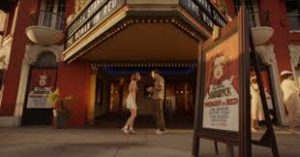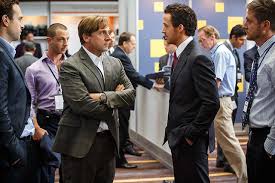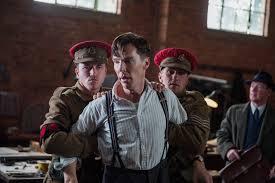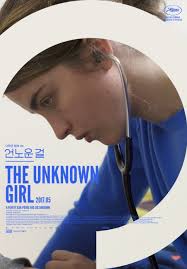THE EAST IS EAST AND THE WEST IS WEST: Movie Review of Woody Allen’s Café Society by Howard Casner
Posted: August 6, 2016 | Author: Donald | Filed under: Uncategorized | Tags: Café Society, Corey Stoller, Jeannie Berlin, Jessie Eisenberg, Ken Stott, Kristen Stewart, Parker Posey, Paul Schneider, Stephen Kunken, Steve Carrell, Still Alice, The Clouds of Sils Maria, Woody Allen | 1,003 Comments »First, a word from our sponsors: I wanted to say thank you to everyone who contributed to our Indiegogo campaign for 15 Conversations in 10 Minutes. We did very well due to you folks. For those who weren’t able to give, keep us in your thoughts. And if you are able to contribute in the future, contact me and I’ll tell you how. I will even honor the perks on the original campaign.
I am now offering a new consultation service: so much emphasis has been given lately to the importance of the opening of your screenplay, I now offer coverage for the first twenty pages at the cost of $20.00. For those who don’t want to have full coverage on their screenplay at this time, but want to know how well their script is working with the opening pages, this is perfect for you. I’ll help you not lose the reader on page one.
Ever wonder what a reader for a contest or agency thinks when he reads your screenplay? Check out my new e-book published on Amazon: Rantings and Ravings of a Screenplay Reader, including my series of essays, What I Learned Reading for Contests This Year, and my film reviews of 2013. Only $2.99. http://ow.ly/xN31r
and check out my Script Consultation Services: http://ow.ly/HPxKE
Warning: SPOILERS
 In Woody Allen’s most recent attempt at making himself forget that he will have to die one day, or as it’s called in the state of the art, his latest film, Café Society, about a young man, Bobby (Allen stand in Jessie Eisenberg), who goes out to the West Coast to see if he wants to make a future there, the camera often glides around a scene with all the grace of Sonja Henri, even at times so smoothly it left me a little dizzy. I can’t remember the last time I saw Allen’s camera flow as much as it does here. Often of late, his camera feels as if it were following the old saying, what you see is what you get.
In Woody Allen’s most recent attempt at making himself forget that he will have to die one day, or as it’s called in the state of the art, his latest film, Café Society, about a young man, Bobby (Allen stand in Jessie Eisenberg), who goes out to the West Coast to see if he wants to make a future there, the camera often glides around a scene with all the grace of Sonja Henri, even at times so smoothly it left me a little dizzy. I can’t remember the last time I saw Allen’s camera flow as much as it does here. Often of late, his camera feels as if it were following the old saying, what you see is what you get.
Its appearance was so refreshing at the beginning of the film, it had me hoping for something more than a typical 21st Century Woody Allen movie. But alas, though not a terrible night at the cinema, Café Society is only intermittently successful.
A BIT SHORT: The Big Short and The Hateful Eight
Posted: December 23, 2015 | Author: Donald | Filed under: Uncategorized | Tags: Adam McKay, Brad Pitt, Bruce Dern, Channing Tatum, Charles Randolph, Christian Bale, Damian Bichir, Ennio Morricone, Jennifer Jason Leigh, Karen Gillan, Kurt Russell, Melissa Leo, Michael Lewis, Michael Madsen, Quentin Tarantino, Ryan Gosling, Samuel L. Jackson, Steve Carrell, The Big Short, The Hateful Eight, Tim Roth, Walton Goggins | 1,892 Comments »First, a word from our sponsors: I am now offering a new service: so much emphasis has been given lately to the importance of the opening of your screenplay, I now offer coverage for the first twenty pages at the cost of $20.00. For those who don’t want to have full coverage on their screenplay at this time, but want to know how well their script is working with the opening pages, this is perfect for you. I’ll help you not lose the reader on page one.
Ever wonder what a reader for a contest or agency thinks when he reads your screenplay? Check out my new e-book published on Amazon: Rantings and Ravings of a Screenplay Reader, including my series of essays, What I Learned Reading for Contests This Year, and my film reviews of 2013. Only $2.99. http://ow.ly/xN31r
and check out my Script Consultation Services: http://ow.ly/HPxKE
Warning: SPOILERS
 The Big Short, like Spotlight, is the one of those movies ripped from the headlines—of years and years ago; but this time the subject is not pedophile priests, but the downfall of the American economy. Written by Charles Randolph and the director Adam McKay, from a book by Michael Lewis, it’s also a very satisfying bit of agitprop theater with Brechtian distancing devices thrown in for good major.
The Big Short, like Spotlight, is the one of those movies ripped from the headlines—of years and years ago; but this time the subject is not pedophile priests, but the downfall of the American economy. Written by Charles Randolph and the director Adam McKay, from a book by Michael Lewis, it’s also a very satisfying bit of agitprop theater with Brechtian distancing devices thrown in for good major.
It basically tells the story of four different groups of people who all realized, more or less at the same time, and years ahead of schedule, that the housing mortgage bubble was going to burst in 2007 and destroy the world’s economy.
This leads to the movie’s major irony: the people who figured this out then proceed to invest heavily against the U.S. economy, making tons of money when their Cassandra like prediction of doom came true.
So basically, we in the audience, along with the characters in the movie, find ourselves and themselves actually hoping that the U.S. financial system tanks like the Titanic. Read the rest of this entry »
REEL MEN, REAL MEN, PART ONE: Movie reviews of Foxcatcher, Rosewater and The Imitation Game by Howard Casner
Posted: November 21, 2014 | Author: Donald | Filed under: Uncategorized | Tags: Alan Turing, Allen Leech, Anthony Michael Hall, Benedict Cumberbatch, Bennett Miller, Channing Tatum, Charles Dance, Dan Futterman, E. Max Frye, Foxcatcher, Gael Garcia Bernal, Graham Moore, Howard Shore, Jason Jones, Jon Stewart, Kid Bodnia, Kiera Knightly, Mark Ruffalo, Mark Strong, Matthew Goode, Maziar Bahari, Morten Tyldum, Rosewater, Shohreh Aghdashloo, Steve Carrell, The Imitation Game, Vanessa Redgrave | 1,167 Comments »First, a word from our sponsors. Ever wonder what a reader for a contest or agency thinks when he reads your screenplay? Check out my new e-book published on Amazon: Rantings and Ravings of a Screenplay Reader, including my series of essays, What I Learned Reading for Contests This Year, and my film reviews of 2013. Only $2.99. http://ow.ly/xN31r
Warning: SPOILERS
 It’s November, which means we few, we happy few, we band of brothers, are fast approaching awards season, which in turn means distributors, producers and studios are bringing out a bunch of stunt performances, or as we vulgarly call them in the vernacular, bio-pics, to qualify for the Academy Awards (among other competitions).
It’s November, which means we few, we happy few, we band of brothers, are fast approaching awards season, which in turn means distributors, producers and studios are bringing out a bunch of stunt performances, or as we vulgarly call them in the vernacular, bio-pics, to qualify for the Academy Awards (among other competitions).
And this year is not only no different, it may actually set a record as it’s quite possible that three of the five female nominees for best actress Oscars will be for movies with characters based on real people and the male category may have up to four.
So please join me for the first installment of Reel Men, Real Men.
Foxcatcher is a movie about a poor younger man with daddy issues who becomes entangled in the life of a wealthy older man with mommy issues. The filmmakers seem determined to raise all the goings on to the level of Greek tragedy, but I’m not convinced it comes close to anything remotely Sophoclean. Read the rest of this entry »
Movie Reviews of FRUITVALE STATION, THE WAY, WAY BACK and BLUE JASMINE by Howard Casner
Posted: August 8, 2013 | Author: Donald | Filed under: Uncategorized | Tags: Alec Baldwin, Allison Janney, Andrew Dice Clay, Blue Jasmine, Cate Blanchette, Fruitvale Station, Jim Rash, Liam James, Maya Rudolph, Michael B. Jordan, Nat Faxon, Peter Sarsgaard, Ryan Cooglar, Sally Hawkins, Sam Rockwell, Steve Carrell, The Way, Toni Collette, Way Back, Woody Allen | 2 Comments »The movie Fruitvale Station has a horrific finale, a fevered, shaking camera dramatization of a terrible, tragic incident. It’s also the main reason to see the film. It’s a disturbing, chaotic and frustrating set of scenes and makes you very angry. So if nothing else, the movie has certainly achieved something here. At the same time, as a whole, the movie never really connected with me. The rest of the film is a chronicle of the events, a day in the life of type thing, of the central character, Oscar Grant, a young man with a difficult background spending his last day on earth without knowing his time is running out.
How you feel about the film will probably depend upon how you feel about this character. Oscar (played sincerely and solidly by Michael B. Jordan) is a petty drug dealer who has been in and out of prison. He’s also a compulsive liar; a player; has anger management issues; and refuses to take any responsibility for how his life has turned out. He’s the sort of guy who tells his girlfriend and mother of his child that that last affair he recently had, you know the one, well, hey, now, babe, that meant nothing and it’s over and I’m a new guy now; then in the next scene, he’s flirting with a young woman at the store he once worked at. He’s also the kind of guy who threatens his ex-box with bodily harm if he won’t give him his job back, the job he lost from constantly showing up late (at another time, he threatens to urinate on a poor store owner’s entranceway if he won’t let some friends of his use the store bathroom—you see a pattern here).
After all that, he should be fascinating. He’s the sort of character that I go to movies to see. But Oscar isn’t. In fact, he’s sort of familiar and the kind of character we’ve seen many times in movies before. There’s nothing that particularly unique or vibrant about him. He’s even a bit bland, when all is said and done. Hard to believe when one reads the description above, but that was pretty much it for me.
I think because of this, once the emotional effect of the horrific incident at Fruitvale Station wore off, I thought: okay, it was a terrible event, but I’m still not sure why the writer/director Ryan Cooglar made the movie. The tragedy at the end is not presented in a way that is a commentary on Oscar’s life, though one gets the feeling that Cooglar wants it to be in some way. Instead, it’s unclear Cooglar offers any real insight to the situation or has anything to say about it other than, well, than “shit happens”. Which, actually, is a perfectly fine theme; it’s just unclear that this was Cooglar’s intention.
I do highly recommend a film with a similar situation, The Murder of Stephen Lawrence, written and directed by Paul Greenglass, also a true story about a black teenager who was shot and killed by police officers for unclear reasons; this time in England. It’s a tension filled story that grabs you from the beginning and refuses to let go. Fruitvale Station felt a bit too leisurely to me.
Over the past couple of years, two genres of film seem to have dominated the silver screen: the coming of age film (from Moonlight Kingdom to The Perks of Being a Wildflower to The Kings of Summer to The Bling Ring to The To Do List) and the film apocalypse (from It’s a Disaster to This is the End to The World’s End to World War Z to almost any movie based on a super hero). I’m not sure what this means. I can’t say that it’s a particularly optimistic view of the world to say that just when one takes the first steps toward being an adult you’re shit out of luck because the world’s about to bite you in the ass big time.
The latest foray into the coming of age category is The Way, Way Back, a story about a teen, Duncan (played satisfactorily by Liam James), having to spend a couple of weeks at a beach house with his mother Pam and her new boyfriend Trent, who treats Duncan like a cockroach to be stomped on. While The Kings of Summer is a more ambitious film, The Way, Way Back is actually more satisfying if for no other reason that while the kids in the former film are nothing but spoiled brats who don’t know when they are well off, the hero in the latter film is in a near nightmarish situation in which he is more sinned against that sinning.
But like many films in this popular genre, The Way, Way Back is fun and entertaining and even moving at times, while not really bringing anything new to the table and it all feels rather formulaic. What it does have is some very nice acting, especially from Sam Rockwell in the Bill Murray role, as Owen, the manager of a swimming park who takes pity on the depressed Duncan and becomes the true father figure that Trent (Steve Carrell, giving it his all, while at the same time, never seeming comfortable in the roll and always looking miscast) could never be. Giving more than able support is Toni Collette as the scared and desperate Pam; Allison Janney, hysterical as Betty, the alcoholic in the making next door neighbor; and Maya Rudolph as Owen’s long suffering co-worker.
Perhaps the most original and intriguing aspect of the screenplay (by Nat Faxon and Jim Rash, who also directed) is the character of Betty. In many ways, she treats her kids in the same inexcusably awful manner as Trent treats the kids under his roof. But while Trent leaves you with the feeling that he’s one degree off from becoming Ted Bundy, it’s obvious that Betty and her kids all love each other very much. It’s a clever juxtaposition.
But in the end, does it really matter? The way things are going in the movies these days, all the characters are going to die in a couple of years anyway.
Blue Jasmine is a character study of a faded Northern bell. Any resemblance to A Streetcar Named Desire is purely unintentional, I’m sure (and I have the deed to the Brooklyn Bridge in my pocket). But though written and directed by the great Woody Allen, it feels like a screenplay written by someone who had no emotional attachment to anyone in the film or anything that is going on in it as well. And when it’s all over, you go: fair enough, but exactly why was it made?
It stars Cate Blanchette as Jasmine, a woman married to a Bernie Madoff type (Alec Baldwin) who loses all her upper class trappings when her husband is arrested and the IRS and the court take everything she owns. She moves to San Francisco to live with her sister Ginger, someone she feels too superior to to really want to have anything to do with (Sally Hawkins). The story is told in a rather clunky manner with tons of expository dialog and some distracting side trips (mainly dealing with the Ginger’s love life) that just get in the way of Jasmine’s central through line.
The plot is often not that believable; Jasmine takes a computer course for some reason that never made sense—she claims to be computer illiterate, but no one in her social background is this obtuse. She also has a romance with a politician on the rise (Peter Sarsgaard), someone who works for the State Department yet still has enough money to buy a second home only Donald Trump could afford (okay, I’m exaggerating, but you get my drift). This subplot is so questionable that one is expecting Sarsgaard’s character to turn out to be a con man of some sort with the intent of Jasmine getting a taste of her own medicine; but no, he is exactly what he seems. And that’s without mentioning a surprise ending that only poses more questions than it answers.
On the plus side, this is a movie that is cast within an inch of its life. Everyone is excellent and some, like Hawkins and Blanchett, are brilliant. Perhaps most surprising Is Andrew Dice Clay who is spot on as Hawkins’ working class ex-husband (who knew that Clay could actually have had an acting career if he hadn’t been such a jerk). But in many ways, that is almost all Blue Jasmine has. Whether that is enough, is up to you.










 For questions: hcasner@aol.com
For questions: hcasner@aol.com There have been many examples of siblings sharing writing, directing and even producing credits from the Maysles to the Tavianis to the Wachowskis. Perhaps the most successful pairs artistically are the Coens and the Dardennes.
There have been many examples of siblings sharing writing, directing and even producing credits from the Maysles to the Tavianis to the Wachowskis. Perhaps the most successful pairs artistically are the Coens and the Dardennes.
